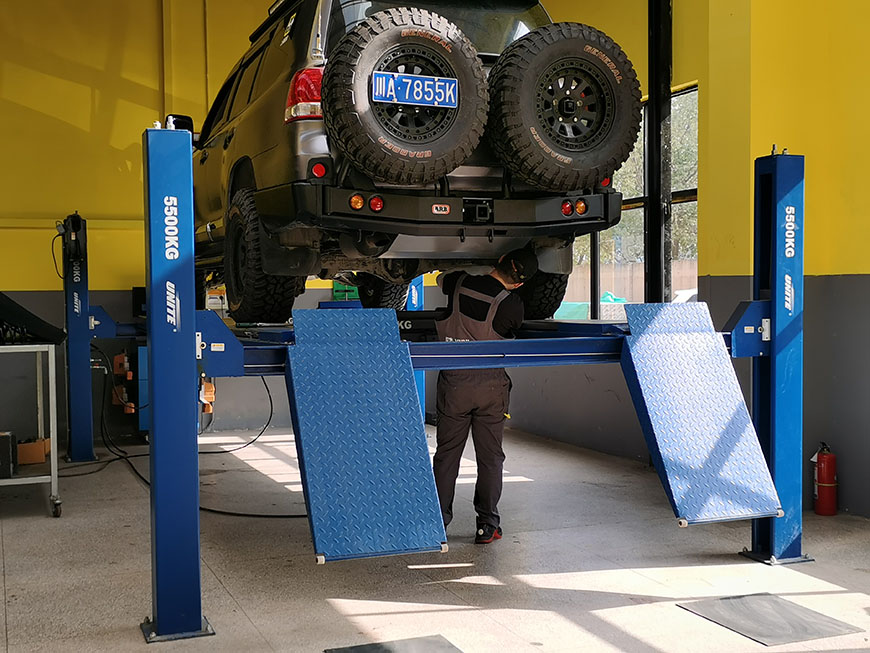When it comes to lifting vehicles for repairs or maintenance, having the right jack is essential for efficiency, safety, and stability. Two popular options for lifting cars are the trolley jack and the floor jack. While both jacks serve the same purpose, there are distinct differences between them that can impact their functionality and suitability for specific tasks. In this post, we will explore the differences between trolley jacks and floor jacks, helping you make an informed choice based on your needs and preferences.
Point 1 :Design and Structu
The design and structure of trolley jacks and floor jacks differ significantly. A trolley jack, also known as a hydraulic jack or a bottle jack, features a compact and portable design. It consists of a hydraulic cylinder mounted on a four-wheeled trolley, allowing for easy maneuverability and positioning under the vehicle. On the other hand, a floor jack, also referred to as a hydraulic floor jack, is a larger and heavier jack with a long handle for pumping. It typically has a two or three-piece handle that allows for greater leverage during lifting operations.
Point 2 :Lifting Capacity
One crucial factor to consider when choosing between a trolley jack and a floor jack is their lifting capacity. Trolley jacks are generally designed to handle heavier loads and have a higher lifting capacity compared to floor jacks. Trolley jacks are suitable for lifting larger vehicles such as trucks or SUVs, whereas floor jacks are commonly used for lifting smaller to mid-sized cars. It is essential to check the lifting capacity of each jack and ensure it exceeds the weight of the vehicles you intend to lift.
Point 3 : Height and Reach
Another significant difference between trolley jacks and floor jacks is their height and reach capabilities. Trolley jacks usually offer a greater maximum lifting height than floor jacks. They have a long hydraulic cylinder that allows for more vertical travel, enabling users to lift vehicles higher off the ground. Floor jacks, on the other hand, have a lower profile and may not provide the same lifting height as trolley jacks. This can be a crucial consideration if you require more clearance under the vehicle for specific repair tasks.
Point 4: Stability and Maneuverability:
Trolley jacks and floor jacks differ in terms of stability and maneuverability. Trolley jacks are known for their stability due to their wide base and four-wheeled design. The wheels allow for easy positioning and movement of the jack, providing stability during the lifting process. Floor jacks, although generally stable, may require extra caution to ensure proper positioning and stability before lifting the vehicle. They usually have a larger footprint, which can limit maneuverability in tight spaces.
Point 5: Portability
Portability is another factor to consider when comparing trolley jacks and floor jacks. Trolley jacks, with their compact design and wheels, offer greater portability. They are easier to transport and store, making them suitable for mobile mechanics or those who require a jack for use in multiple locations. Floor jacks, due to their larger size and weight, are less portable and may be more suitable for stationary use in a garage or workshop.
Point 6:Price
Price is always an important consideration when choosing between different tools. In general, trolley jacks tend to be more affordable compared to floor jacks. The compact design and simpler construction of trolley jacks contribute to their lower price point. Floor jacks, with their heavier build and larger lifting capacity, often come at a higher cost. Consider your budget and the specific requirements of your lifting tasks when making a decision based on price.
Conclusion:
Choosing between a trolley jack and a floor jack depends on factors such as lifting capacity, lifting height, stability, maneuverability, portability, and budget. Trolley jacks offer greater lifting capacity, higher lifting height, and enhanced maneuverability, making them suitable for heavier vehicles and tasks that require more clearance. Floor jacks, with their stable design and lower profile, are often preferred for smaller to mid-sized cars. Assess your specific needs, consider the differences outlined above, and select the jack that best meets your requirements in terms of functionality, safety, and cost-effectiveness.

